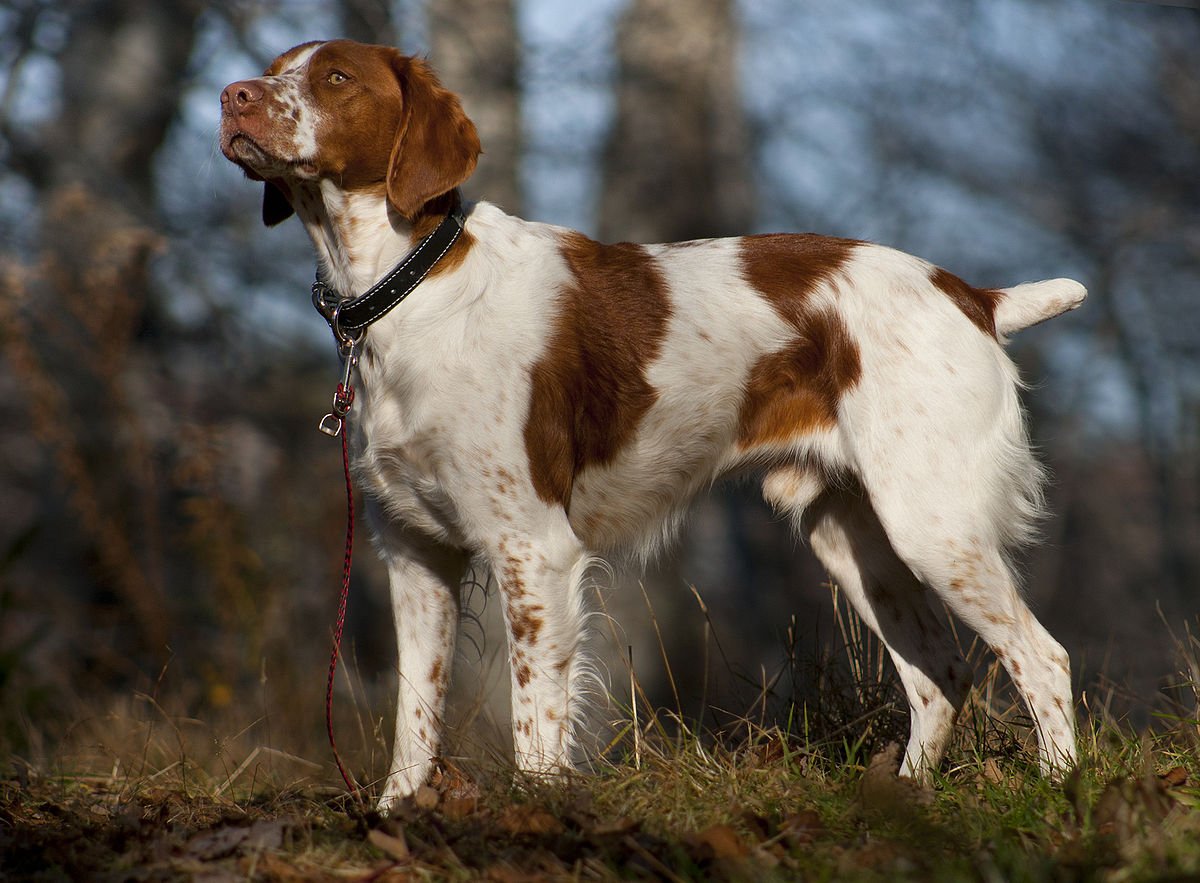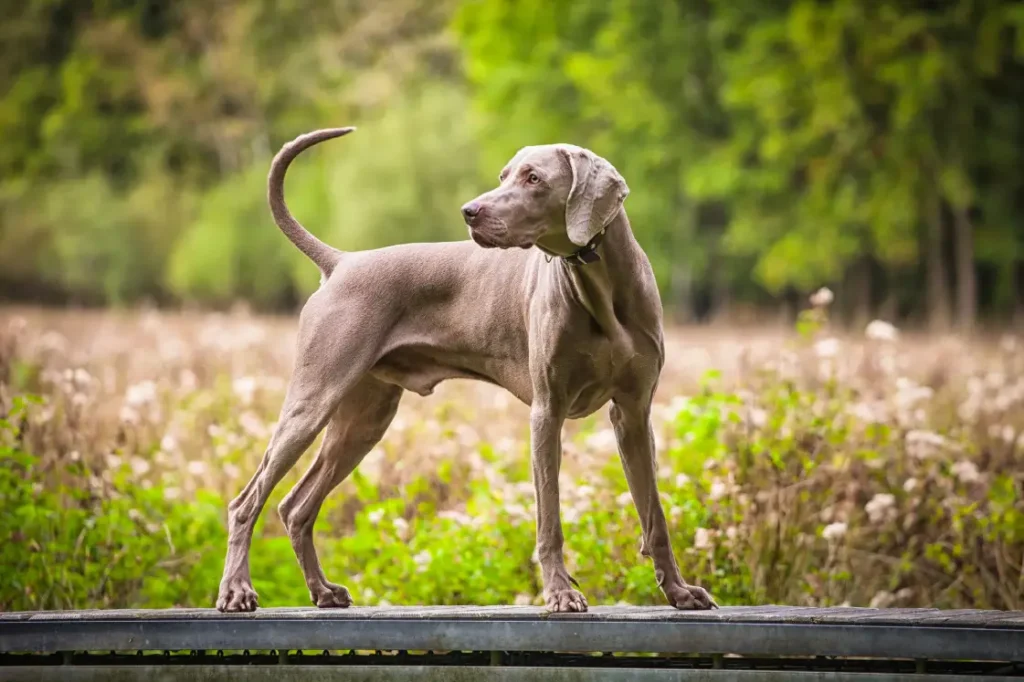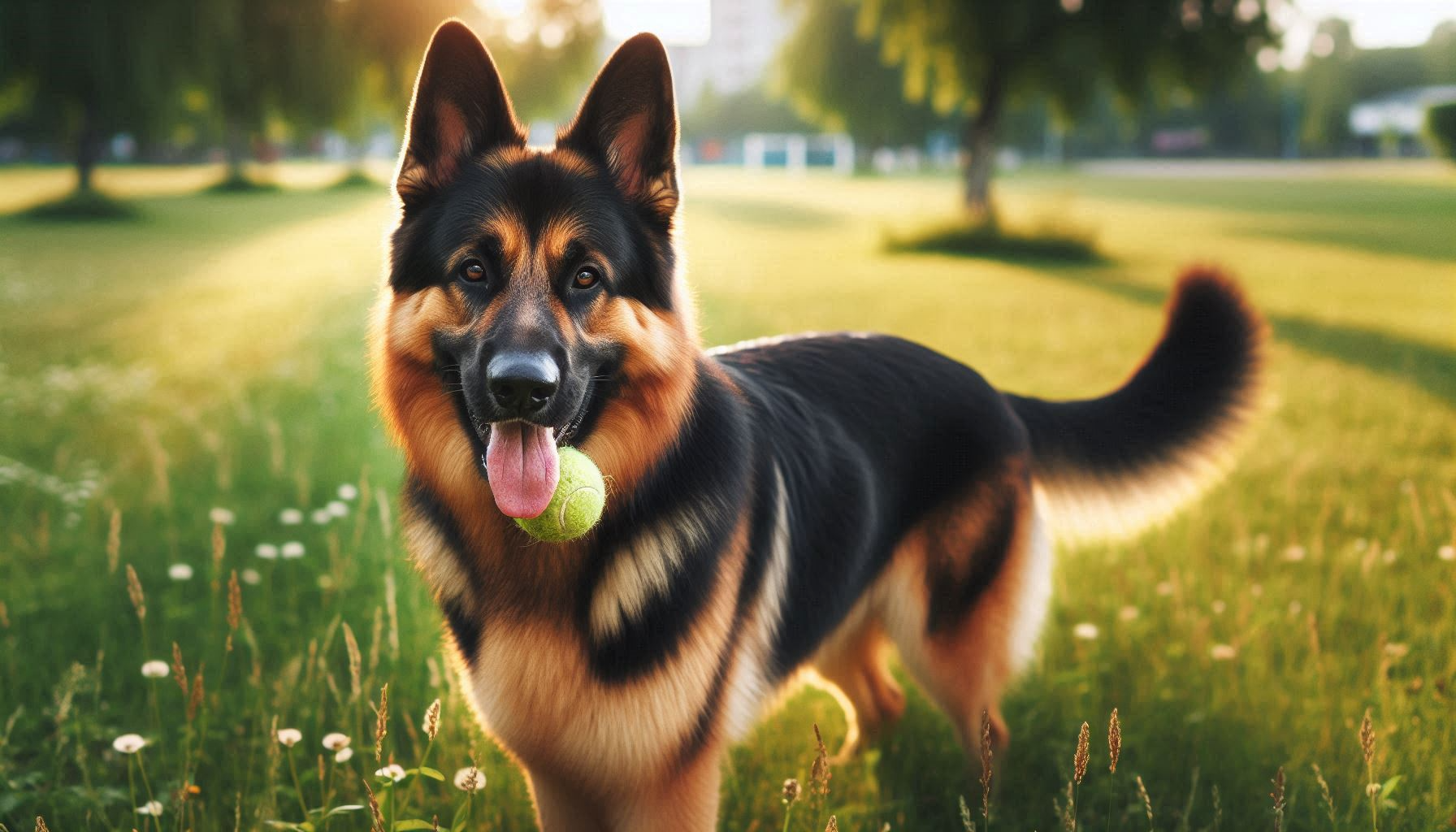Table of Contents
German Shorthaired Pointer Dog Breed
The German Shorthaired Pointer (GSP) is a versatile and energetic dog breed that has captured the hearts of many dog enthusiasts. Known for its athleticism, intelligence, and affectionate nature, this breed is popular among hunters, active families, and anyone who appreciates a loyal canine companion. Whether you’re looking for a hardworking hunting partner or a loving family pet, the German Shorthaired Pointer has much to offer.
German Shorthaired Pointer Dog History and Origin

The German Shorthaired Pointer has a rich history that dates back to the 19th century in Germany. Developed by crossing various breeds, including the Old Spanish Pointer, the English Pointer, and local German tracking dogs, the GSP was designed to be an all-purpose hunting dog. The breed’s versatility was paramount; it was expected to track, point, retrieve, and even hunt game on both land and water.
The breed was officially recognized in Germany in the late 1800s and quickly gained popularity due to its exceptional hunting abilities. The GSP made its way to the United States in the early 20th century, where it was recognized by the American Kennel Club (AKC) in 1930. Since then, the breed has grown in popularity, not only as a hunting dog but also as a beloved family pet.
German Shorthaired Pointer Dog Physical Characteristics

The German Shorthaired Pointer is a medium to large sized dog, known for its well balanced and athletic build. Here are some key physical characteristics:
- Size: Adult males typically weigh between 55 70 pounds and stand about 23-25 inches tall at the shoulder. Females are slightly smaller, weighing between 45 60 pounds and standing 21 23 inches tall.
- Coat Type: The GSP has a short, dense, and water-resistant coat, making it easy to groom and ideal for outdoor activities. The coat lies flat and close to the body, providing protection in various weather conditions.
- Colors: The breed’s coat colors range from solid liver to liver and white, with various patterns including roan, patched, or ticked. The liver-colored coat is the most common, giving the GSP its distinctive appearance.
- Distinctive Features: The breed is known for its expressive almond-shaped eyes, which are usually brown, and its large, floppy ears that hang close to the head. The tail is typically docked to about 40% of its original length, giving it a sleek and balanced look.
Temperament and Personality
The German Shorthaired Pointer is known for its lively and enthusiastic personality. This breed is intelligent, eager to please, and highly trainable, making it a favorite among dog owners who enjoy an active lifestyle.
- Interaction with People: GSPs are affectionate and loyal, forming strong bonds with their owners. They thrive on human interaction and are known for being friendly and outgoing with strangers, making them excellent companions.
- Interaction with Children: This breed is generally good with children, especially when socialized from a young age. Their playful and energetic nature makes them great playmates, though their exuberance means they may not be the best fit for very small children without supervision.
- Interaction with Other Animals: German Shorthaired Pointers are typically good with other dogs and pets, especially when raised together. However, due to their strong hunting instincts, they may have a tendency to chase smaller animals like cats or rabbits.
Health and Lifespan
The German Shorthaired Pointer is a robust and healthy breed, but like all dogs, it is prone to certain health issues. Understanding these can help owners keep their dogs healthy and happy.
- Common Health Issues:
- Hip Dysplasia: A genetic condition that affects the hip joints, leading to arthritis and mobility issues.
- Bloat (Gastric Dilatation-Volvulus): A life threatening condition where the stomach twists, cutting off blood flow and requiring immediate veterinary attention.
- Ear Infections: Due to their floppy ears, GSPs are prone to ear infections if not cleaned regularly.
- Eye Conditions: Some GSPs may develop eye issues like cataracts or progressive retinal atrophy (PRA).
- Lifespan: The average lifespan of a German Shorthaired Pointer is 12-14 years. With proper care, regular vet check-ups, and a healthy lifestyle, many GSPs live long and active lives.
- Tips for Health Maintenance:
- Regular exercise is crucial for maintaining a healthy weight and preventing joint issues.
- A balanced diet rich in nutrients, along with regular vet visits, can help detect and manage health problems early.
- Dental care, including regular brushing and professional cleanings, can prevent oral health issues.
Care and Grooming

Caring for a German Shorthaired Pointer requires attention to grooming, exercise, and diet to ensure they remain healthy and happy.
- Grooming Needs:
- The GSP’s short coat is low maintenance, requiring only weekly brushing to remove loose hair and distribute skin oils.
- Bathing should be done as needed, usually once every few months, unless the dog gets particularly dirty.
- Regular ear cleaning is essential to prevent infections, especially after swimming.
- Nail trimming should be done regularly to prevent overgrowth, which can cause discomfort or injury.
- Exercise Requirements:
- GSPs are highly energetic and require ample exercise daily. This includes long walks, runs, and plenty of playtime.
- They excel in activities like hiking, swimming, and dog sports such as agility, obedience, and field trials.
- Mental stimulation is also important, so incorporating puzzle toys or training sessions can help keep them engaged.
- Dietary Recommendations:
- A high-quality, balanced diet is crucial for this active breed. Look for dog foods that list meat as the primary ingredient and avoid fillers.
- Portion control is important to prevent obesity, which can exacerbate joint issues.
- Fresh water should always be available, and feeding should be split into two meals per day to reduce the risk of bloat.
Training and Socialization
Training and socializing a German Shorthaired Pointer is essential to harness their intelligence and energy positively.
- Training Tips:
- Start Early: Begin training and socialization early to establish good behaviors and reduce the likelihood of bad habits.
- Positive Reinforcement: GSPs respond well to positive reinforcement methods such as treats, praise, and playtime.
- Consistency: Be consistent with commands and expectations. This breed is intelligent but can be stubborn, so patience and persistence are key.
- Challenge Them: Incorporate advanced training or dog sports to keep their minds engaged. Boredom can lead to destructive behavior.
- Socialization:
- Expose your GSP to various people, environments, and other animals from a young age to build confidence and reduce anxiety.
- Regular trips to dog parks, obedience classes, or playdates with other dogs can help them develop good social skills.
Suitability as a Family Pet

The German Shorthaired Pointer can make an excellent family pet, but there are several factors to consider before bringing one into your home.
- Living Environment: GSPs are best suited for homes with ample space and a yard where they can run and play. They are not ideal for apartment living unless the owner is committed to providing significant daily exercise.
- Energy Levels: This breed has high energy levels and requires a lot of physical and mental stimulation. They are perfect for active families who enjoy outdoor activities like hiking, running, or hunting.
- Family Dynamics: GSPs thrive in environments where they are part of the family activities. They are not suited to being left alone for long periods, as they can develop separation anxiety and engage in destructive behaviors.
Fun Facts and Trivia
Here are some fun facts about the German Shorthaired Pointer that might surprise you:
- Dual Purpose Dogs: GSPs were bred to be versatile hunting dogs, capable of pointing and retrieving game both on land and in water.
- Nose for Scent: The GSP’s keen sense of smell makes them excellent at tracking, not just for hunting but also in roles like search and rescue.
- Olympic Level Jumpers: German Shorthaired Pointers are known for their incredible jumping ability, often clearing fences that other dogs wouldn’t attempt.
Dog Breeds Similar to German Shorthaired Pointer



If you love the German Shorthaired Pointer, you might also be interested in these similar breeds:
- Vizsla: Often called the “Hungarian Pointer,” the Vizsla is another high energy, versatile hunting dog with a similar build and temperament to the GSP. Vizslas are known for their affectionate nature and strong bonds with their owners.
- Weimaraner: The Weimaraner, sometimes called the “Gray Ghost” due to its striking gray coat, is a close relative of the GSP. They share similar hunting skills, high energy levels, and a strong desire for human companionship.
- Brittany Spaniel: Smaller than the GSP, the Brittany Spaniel is another energetic bird dog known for its agility and keen sense of smell. They are friendly, easy to train, and excel in various dog sports.
Conclusion
The German Shorthaired Pointer is a remarkable breed, combining intelligence, athleticism, and affection into a versatile and loyal companion. Whether you’re an avid hunter, a runner, or simply someone who loves the outdoors, the GSP might be the perfect addition to your family. With the right care, training, and attention, this breed will reward you with years of companionship, love, and adventure.
FAQs
Is the German Shorthaired Pointer a dangerous dog?
No, the German Shorthaired Pointer is not considered a dangerous dog. They are known for their friendly and outgoing nature. While they may have strong hunting instincts, they are typically gentle and affectionate with people, including children. Proper socialization and training will ensure they are well behaved and safe companions.
Is the German Shorthaired Pointer the best guard dog to protect you or your family?
While the German Shorthaired Pointer is alert and will bark to alert you to strangers, they are not typically used as guard dogs. Their friendly and social nature makes them more likely to welcome guests rather than act as protectors. However, their loyalty and intelligence mean they can be trained to be more protective if needed, though they are not naturally aggressive.



